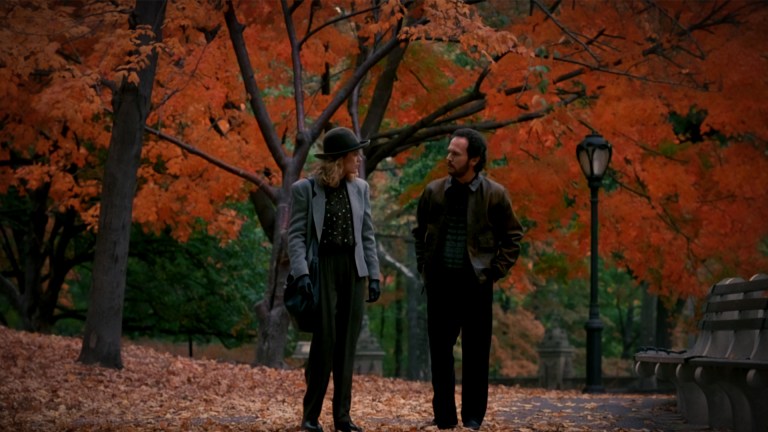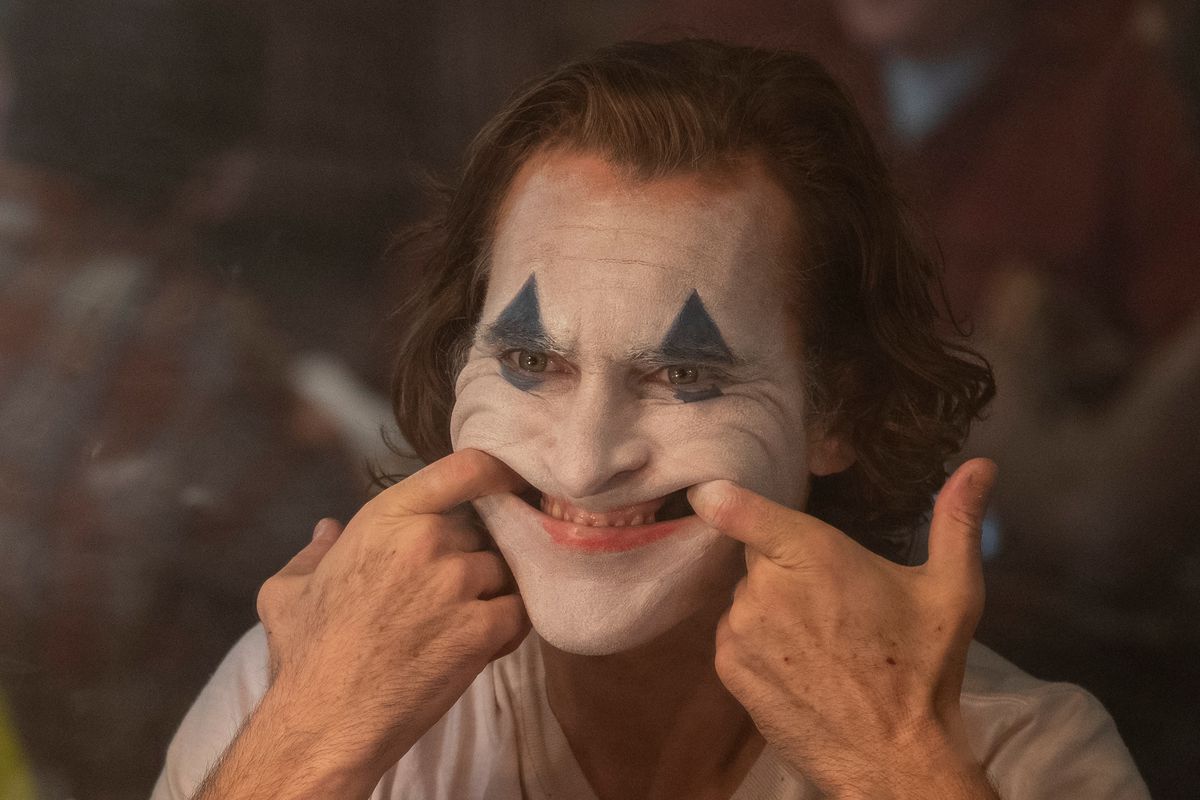
5 Movies Where The Main Character Was The Villian
“You either die a hero or live long enough to see yourself become the villain.”
Protagonist versus antagonist. Hero versus villain. It’s a tale as old as time, and the basic schematic of every story. Sometimes, though, clever filmmakers try to subvert expectations to make audiences question everything they have seen or believed up to a point. The quickest and most effective way to elicit an OMG reaction is through a game-changing revelation that the protagonist has been the antagonist all along. Sure, it’s the kind of twist that only hits hard on the first watch, but oh, it’s too juicy to ever forget about thereafter.
With that said, let’s take a look at the films that should have come with a warning for everyone to wear a helmet because the protagonist-antagonist switcheroo blew minds. (Beware: Spoilers ahead.)
Fight Club
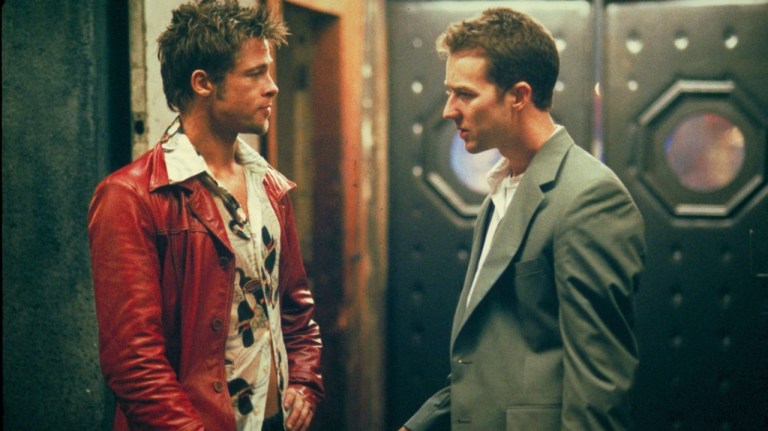
In Fight Club, the unnamed narrator (Edward Norton) lives a pitiful, middle-class existence until he meets the handsome and carefree Tyler Durden (Brad Pitt). He comes alive when they slug it out and turn their back on society’s expectations and norms. It doesn’t take too long for them to attract others into their “fight club” and anti-establishment organization.
However, the narrator grows uneasy as Tyler’s plans get bigger and badder. For example, a key part of his proposed Project Mayhem involves blowing up the headquarters of credit card companies and freeing society from the shackles of debt and the noose of accumulated interest. When the narrator tries to stop Tyler, he comes to the realization that he is Tyler–he created this wild personality as a form of escapism to do and say what his consciousness secretly craved. He is Jack’s fractured psyche.
Saltburn

Look, Oliver Quick (Barry Keoghan) comes across as a freak rather fast in Saltburn. For the average viewer, though, they would explain away his behavior as a young man infatuated with Felix Catton (Jacob Elordi) who struggles to deal with his feelings and ability to capture Felix’s full attention. Then, Oliver goes to the Catton family estate, Saltburn, for the summer and he gets treated like an outsider – especially by Felix’s cousin Farleigh Start (Archie Madekwe).
The turning point comes when Oliver’s lies about his family are discovered by Felix, who turns his back on his friend. From there, a series of tragic events occur where Felix and his sister, Venetia (Alison Oliver), die, Farleigh gets cut off from the family, and Oliver gets paid to leave Saltburn. Fast-forward a few years later, Oliver finds himself back at Saltburn at the behest of Felix’s mother, Lady Elspeth (Rosamund Pike). On her deathbed, Oliver reveals himself to be the person who orchestrated everything to take control of Saltburn and the lavish lifestyle he craved. “I hated all of you,” he says. “And you made it so easy. Spoiled dogs sleeping belly-up.”
Gone Girl

In Gone Girl, Amy Dunne (Rosamund Pike) disappears and her husband, Nick (Ben Affleck), becomes the prime suspect. Through Amy’s journal entries, the audience learns more about Amy and Nick’s shaky relationship and how they reached a point of no return. Amy reveals what led them to grow apart and the pressures they experienced as both individuals and as a couple, culminating with Nick starting an affair with his student.
Throughout the film, Nick proclaims his innocence, despite the mounting evidence against him and his occasional bend of the truth. Is Nick a rotten husband? Sure. But is he a murderer? That remains unclear… until Amy is revealed to be alive and well. After discovering Nick’s affair, she planned to frame him for her murder to teach him the ultimate lesson. Her revenge tour might not have gone off as she initially expected, but she still comes out looking like the hero in the end and having Nick right under her thumb.
Joker
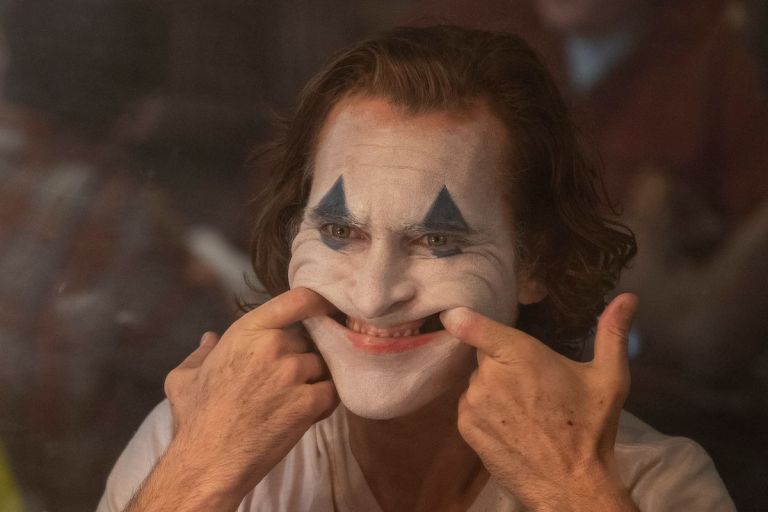
To be fair, anyone familiar with the Batman mythos should not have gone into this expecting Arthur Fleck (Joaquin Phoenix) to turn into Gandhi in Joker–since he is DC’s residential homicidal clown. However, Todd Phillips’ film does a good job of portraying Arthur as a downtrodden and vulnerable member of society. He dreams of becoming a celebrated comedian and appearing on Murray Franklin’s (Robert De Niro) talk show. At the same time, he starts a relationship with his neighbor Sophie Dumond (Zazie Beetz), while believing he discovered the identity of his real father, Thomas Wayne (Brett Cullen).
This all changes when Thomas reveals to Arthur that he isn’t his father and Penny (Frances Conroy) adopted him. From there, Arthur snaps–killing his mother, murdering Murray on his own talk show, and inciting violence in Gotham City. Not exactly a heroic reaction to bad news, is it? Also, it’s revealed that Arthur never had a relationship with Sophie to begin with–it was all a figment of his imagination. One has to wonder how much more of Arthur’s sympathetic story was all in his head and not an accurate representation of the real events.
The Shining
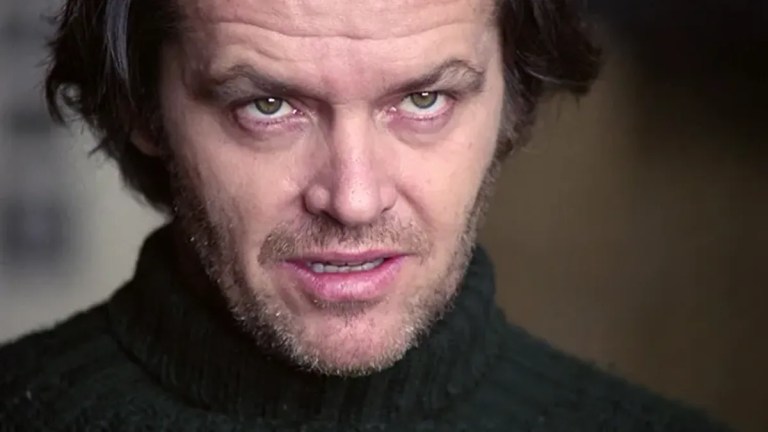
Jack Torrance (Jack Nicholson) and his family live the dream, as they move into the Overlook Hotel during the winter season. Remote and devoid of any other human beings around them, this is the equivalent of Heaven on Earth for every introvert as they have this giant place all to themselves. However, Jack starts to experience severe writer’s block in this time, which understandably makes him a little crabby to be around.
Unfortunately, the general crabbiness soon turns into a murderous streak as the hotel’s ghosts – literally and figuratively – take over Jack. Stuck in the middle of nowhere and terrified of all the strange happenings, his family runs away from the possessed Jack as he tries to kill his wife, Wendy (Shelley Duvall), and son, Danny (Danny Lloyd). Ultimately, Jack meets an icy end by freezing to death in the outside maze after his son tricks him. But what’s the moral of the story here? Don’t let writer’s block turn you to the dark side.



